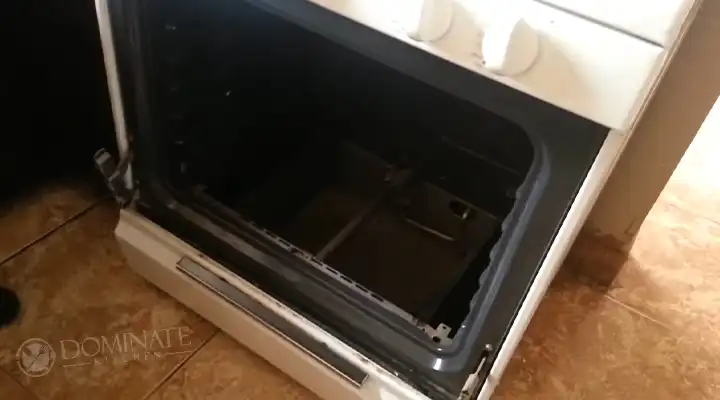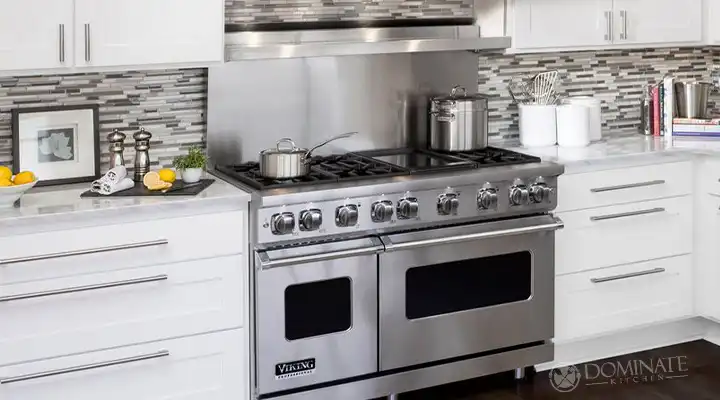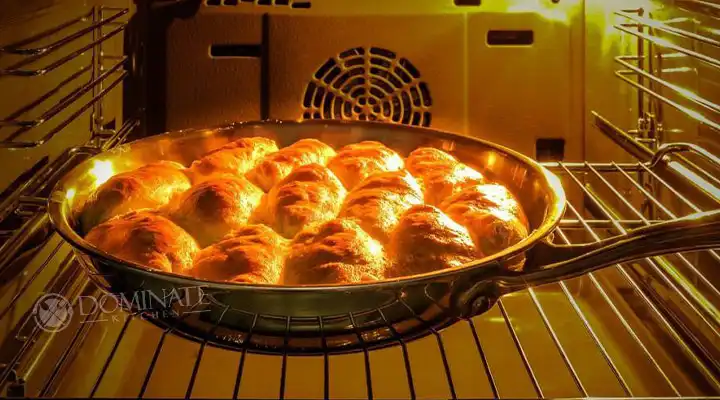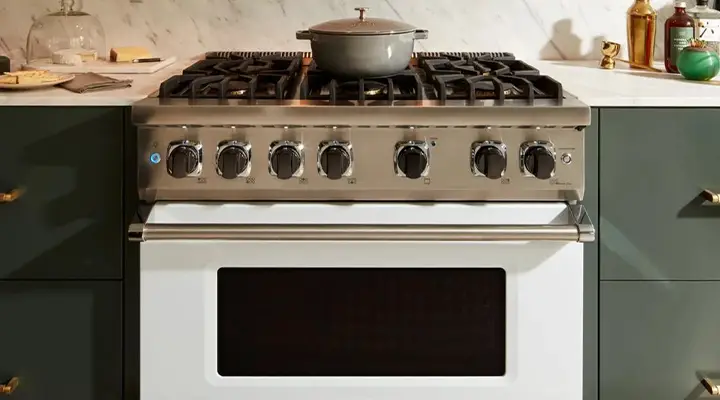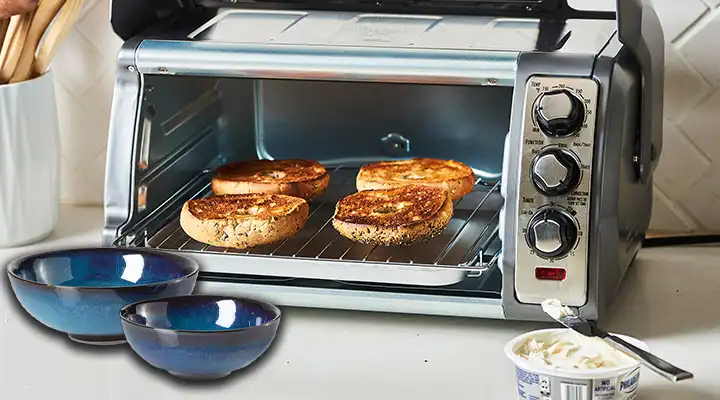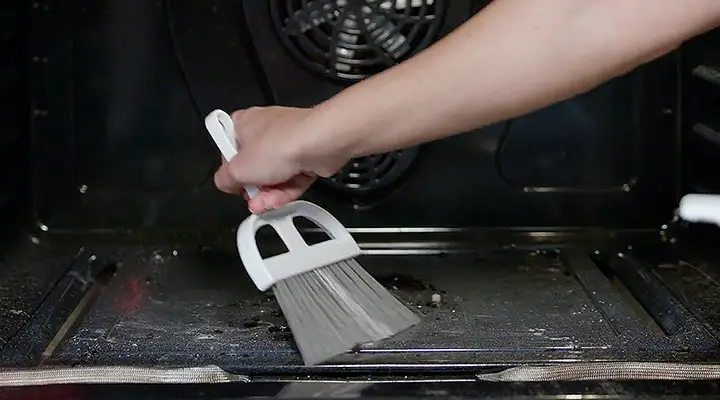Does Using the Oven Heat Up the House in the Summer? Summer Survival Guide
Using large appliances like your oven or stove might cause your kitchen to become too hot to handle. The heat can even travel to other areas of your home, forcing your air conditioner to work harder.
House temperature depends on many things. Depending on the size of the apartment, air circulation system, appliances, and weather, a house may or may not be able to handle an oven.
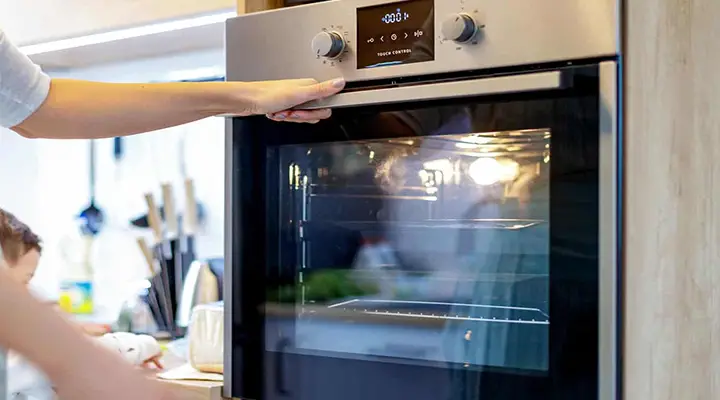
How Does Oven Impact Your Home’s Temperature?
Using your oven may not only heat up your meals but also your home, especially during the scorching summer months. Let’s explore how ovens contribute to raising the temperature inside your house in a simple and easy-to-understand way.
1. Convection in Action: When you turn on your oven, it starts to warm up, and it does so by heating the air inside. This hot air doesn’t stay put; it tends to rise, creating what we call convection currents. Imagine the hot air as invisible waves that rise and spread through your kitchen.
2. Radiation Matters: Apart from convection, ovens also emit something called “infrared radiation.” This radiation is like invisible heat waves that travel out from the oven walls and racks. When they touch surfaces, like your countertops and walls, they make them warmer.
3. The Closed Space Effect: Kitchens are often relatively small, and when you cook in an enclosed space, like your kitchen, the heat has nowhere to go but stay inside. This trapped heat begins to make the whole room, and even nearby areas, warmer.
So, in a nutshell, your oven heats up your home through a combination of convection, where hot air rises and circulates, and radiation, where heat waves are emitted from the oven’s surfaces. The smaller the kitchen or the less ventilation, the more noticeable the heat increase will be.
Does Using the Oven Make the House Hot?
Cooking generates a lot of heat. The amount of cooking that will heat the home will be determined by how the heat moves and how much cooking is done. Stoves and ovens that are vented outdoors do not heat the home as well as unvented stoves since all of the heat remains within on an unvented stove.
Is It Bad to Use the Oven in the Summer?
Using an oven in the summer can be a little disturbing because of the heat it produces. But, as cooking is one of the most necessary tasks for a family, you can use some techniques to make it better. Cooking low and slow is one of them. You can easily cook fish, meat, or chicken breast at a low temperature slowly.
How Much Does the Oven Heat up the House?
It will increase the temperature, but the quantity depends on a variety of circumstances, including the size of the apartment and whether or not a fan is used to spread the heat. Turning on the oven for any amount of time elevates the temperature in the house by up to five degrees.
Does the Oven or Stove Make the House Hotter?
Electric ovens can not make a house hotter. But a gas oven or stove can make a room or kitchen hotter. Though an oven or stove makes a room hotter, it will not affect the temperature of the whole house.
Tips for For You Cooking Without Heating Up the House
You’re obliged to use our oven even in the hottest summer months because you don’t have a terrace or a grill. However, there are some things you can do to minimize oven use to a minimum and ensure that heat does not escape.
Multi-task
Plan meals around main dishes, sides, and desserts that can be prepared at the same time (at roughly the same temperature) on separate oven racks. If you use more than one pan in the oven, make sure to stagger them around the racks to improve ventilation.
Keep the Oven Clean
Keep the door seal clean and inspect it frequently to ensure it is performing its job. A faulty seal is the most efficient method to waste energy and heat up your kitchen (and house!).
Regularly clean the interior as well. If the interior of your oven is spotless, you can be confident that the heat and energy are being directed toward cooking your meal rather than the leftover pizza glued to the bottom.
Turn It Off
Rather than waiting for the buzzer or ding, take the initiative and switch off your oven before your meal is done cooking (be sure whatever you’re creating can withstand it—if you’re baking, we’d skip this suggestion). Close the door and let the heat inside complete the job.
Go for the Glass
Glass and ceramic baking dishes are far more efficient than metal pans at cooking food. In a glass pan, you can cook food just as rapidly at a temperature that is 25 degrees lower.
Frequently Asked Questions (FAQs)
Should my oven be hot on the outside?
Ovens may become quite hot on the exterior. Heat rises, and this can cause specific portions of an oven, such as the top, to get warm. This is typical and to be anticipated after an oven has been functioning for several hours.
Does opening the oven lose heat?
According to Shirley O. Corriher’s recently published book Bakewise, if the oven door is left open for thirty seconds, the temperature can decrease by 150° or more! It may then take several minutes for the oven to return to full temperature.
Why do cakes sink when you open the oven door?
There are three possible explanations for this: a) the oven door was opened before the cake had time to set, b) the cake was not placed in the oven as soon as the batter was ready, or c) there was too much-raising agent.
Is it cheaper to use the oven to heat the house?
Running an electric oven is far more expensive than running a smaller space heater. The more energy usage, the higher the power bill – thus this is not a particularly cost-effective alternative. The electric oven should only be used as a last option to heat the house.
To Wrap It Up
Using large kitchen appliances like ovens and stoves in the summer can significantly raise indoor temperatures, making the home less comfortable and potentially causing the air conditioner to work harder. The extent of this impact depends on factors such as appliance type, ventilation, and cooking methods. While using the oven can be challenging in the summer due to added heat, strategies like lower temperature, and longer cooking times can help mitigate the issue.
In general, the heat generated by cooking remains localized and doesn’t affect the entire house. Implementing tips like multitasking, maintaining a clean oven seal, and using efficient cookware can help reduce heat output. By understanding these dynamics, you can enjoy cooking while keeping your home cool.

